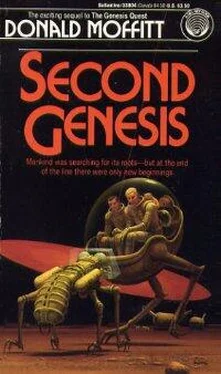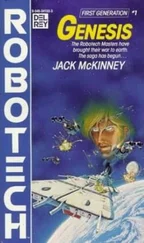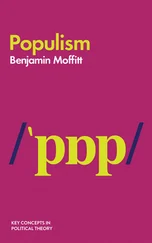“Sent?”
“Yes, it’s stopped. They don’t seem to have anything more to say to one another. Jun Davd says the colony’s on its own.”
“Is he getting anywhere with his analysis?”
“No.”
Jun Davd was interested in Heln’s theories. “A life form that lacks basic empathy on a neurological level. It’s a chilling thought for us humans. Very frustrating. Our only other relationship with intelligent beings was with the Nar—probably the most empathetic life form in the universe.”
“I’ve forbidden our people here to go visit. But I know they sneak over there anyway, make a party of it. Walkers are checked out and are gone for twelve or fifteen hours. I can only hope they’re watching from a distance. The insect-folk themselves are sending out pickets. Those wheeled vehicles of theirs are spreading outward in reconnaissance patterns. They’re probably looking for expansion sites. I hope there are no encounters.”
“And if there are?”
“According to Heln, they’ll see the human beings as a detail of their environment. An unimportant detail. Irrelevant.”
It was an audio-only circuit, but Bram could almost see Jun Davd shake his head in bemusement. “What if some impatient idiot grabbed hold of one of these creatures?”
“Then he’d be a relevant fact of the environment. That’s the kind of encounter I don’t want.”
“I hope your terrestrial life specialists come up with some answers soon. People here in the tree are agog at your pictures. We can’t keep them penned up much longer. You’re liable to have tourists.”
Bram groaned. “That’s all we need.”
“Heln believes that there may be a switch in the neurological makeup of these insect folk—a switch that would make us a part of their perceptions—and that this switch can be tripped if we find the key?”
“Correct.”
“And that once tripped, it will stay tripped for them as a species?”
“Yes.”
“Extraordinary!”
“Heln’s delved into volumes of biological lore from the buried libraries and says there are all sorts of examples of these neurological switches—they’re called ‘releaser’ mechanisms—in terrestroid life. If the animal’s nervous system is complex enough and there’s a degree of social organization, the perception of the triggered individual becomes the perception of the species.”
“What if the perception is something we won’t like?”
“All we want to do is get them to notice us.”
“Be careful.”
“I’m on my way to see Jorv now, to see if he’s made any progress in tracing their species.”
“The claspers at the tip of the abdomen were characteristic of many insects,” Jorv said happily. “Like paired forceps. Insects developed an opposing grip before our own ancestors did. Only they had it in a different place.”
He looked up at Bram, pleased with his little joke. Jorv had gotten an artist to prepare diagrams from Heln’s pictures, and these were spread out on easels around him.
“Odd place for a hand,” Bram said.
“Not when you consider the purpose.”
“Which was?”
“To assist in copulation.” Jorv licked his lips. “A useful accessory, particularly for species that mated in flight.”
“These creatures don’t have wings.”
“No, but I’ll wager an autopsy would show vestigial wing muscles, just as human beings have vestigial tails. They lost the wings somewhere along the way, as ants did.”
Jorv pointed at a picture tacked on the wall, showing a spiny, many-legged creature with fearsome jaws—a blowup from one of the old texts he and Heln had been delving into.
“Are they ants?”
“No. I haven’t been able to find a form they correspond to—not yet. There’s something puzzling about them.”
Bram looked again at the diagram of the abdominal claspers. They were heavily gauntleted, but their form was plain enough, as a gloved hand is.
Jorv continued happily babbling. “The female claspers for gripping the male would have been in a different abdominal segment, but that doesn’t mean anything. The structures would have been there embryonically, and if evolution decided they would make a useful hand, a similar appendage could have developed from the ovipositor.”
“Ovipositor?”
“For laying eggs. It was generally equipped to puncture holes in mud, vegetation, or some other hatching medium. Living flesh, I’m afraid, in the case of some of the nastier species.”
“Insects seem to have been a remarkably single-minded life form.”
“In the sense of a will to survive? So were our own ancestors, no doubt. But those creatures building their city out there have developed intelligence. They’ve learned how to survive and propagate through technology. Don’t worry. Once we get a key to their developmental patterns, we’ll find a way to communicate with them.”
“I hope so.”
Jorv frowned. “I still haven’t decided whether their ancestors were plant eaters or meat eaters. The mouth parts are hidden inside that odd facial structure. There were over a hundred million species of insects, and so far I haven’t been able to find anything like it.”
Ame came over with a new sheaf of blowups. “Hunters or browsers?” she mused. “It would be nice to know before we meet them again.”
* * *
As it happened, it was the insect-folk who made the first move. Bram was having a meal with Ame when he got a call from one of the watchers he had posted on the plain.
“Bram-captain, one of those tube machines is rolling in your direction. It zigzags a lot, but there’s no doubt about where it’s headed. It should reach the digs in about an hour.”
“Thanks. Stay where you are. Keep an eye out for any more of them.”
He stood up. Ame said, “I’ll get the others.”
“Tell them to keep their distance till we see what they’re up to. Let’s see what they have in mind, for a change.”
He deputized a dozen people for crowd control. “Tell everybody to stay out of their way. Don’t interfere with them. If any approach is made, it will be done by one of the specialists.”
An hour later, the excavated streets were full of waiting people. Word had gotten around fast. They sat on ledges, hung over the low rooftops that had thrust themselves out of the rubble, and loitered in the stone arches. Bram had a vantage point from the top of one of the buildings facing the moon plaza. If the insect surveying party kept to the avenues of rubble leading into town, this would be the major route.
“There it comes,” Jao said beside him.
A tiny shape appeared in the distance and soon resolved itself into one of the tube vehicles, bumping along on its fat tires at about twenty-five miles an hour. The four barrel-shaped rollers were all grouped close together under a cab that seemed to carry most of the weight; the long, slender cylindrical body tilted upward at a thirty-degree angle behind it, doing a lot of vibrating. Bram supposed it made as much sense as any other design for rough country; if the cab had to crawl over an obstacle, the projecting section had plenty of leeway to tilt downward without dragging.
The bizarre vehicle rolled by the crystalline shafts of the moonropes without slowing down and came to a quivering stop at the edge of the wide plaza. Bram could see human figures peeking at it from around corners.
He waited for a door to open, but none did. After a few minutes a boxy helmet emerged from the end of the tube, about twelve feet above the ground. The rest of the insect-person extruded itself, hung rigidly horizontal from the lip of the tube by the claspers at the tip of its elongated abdomen, and let itself drop lightly on all fours to the ground. Seven more of the creatures followed.
Читать дальше












